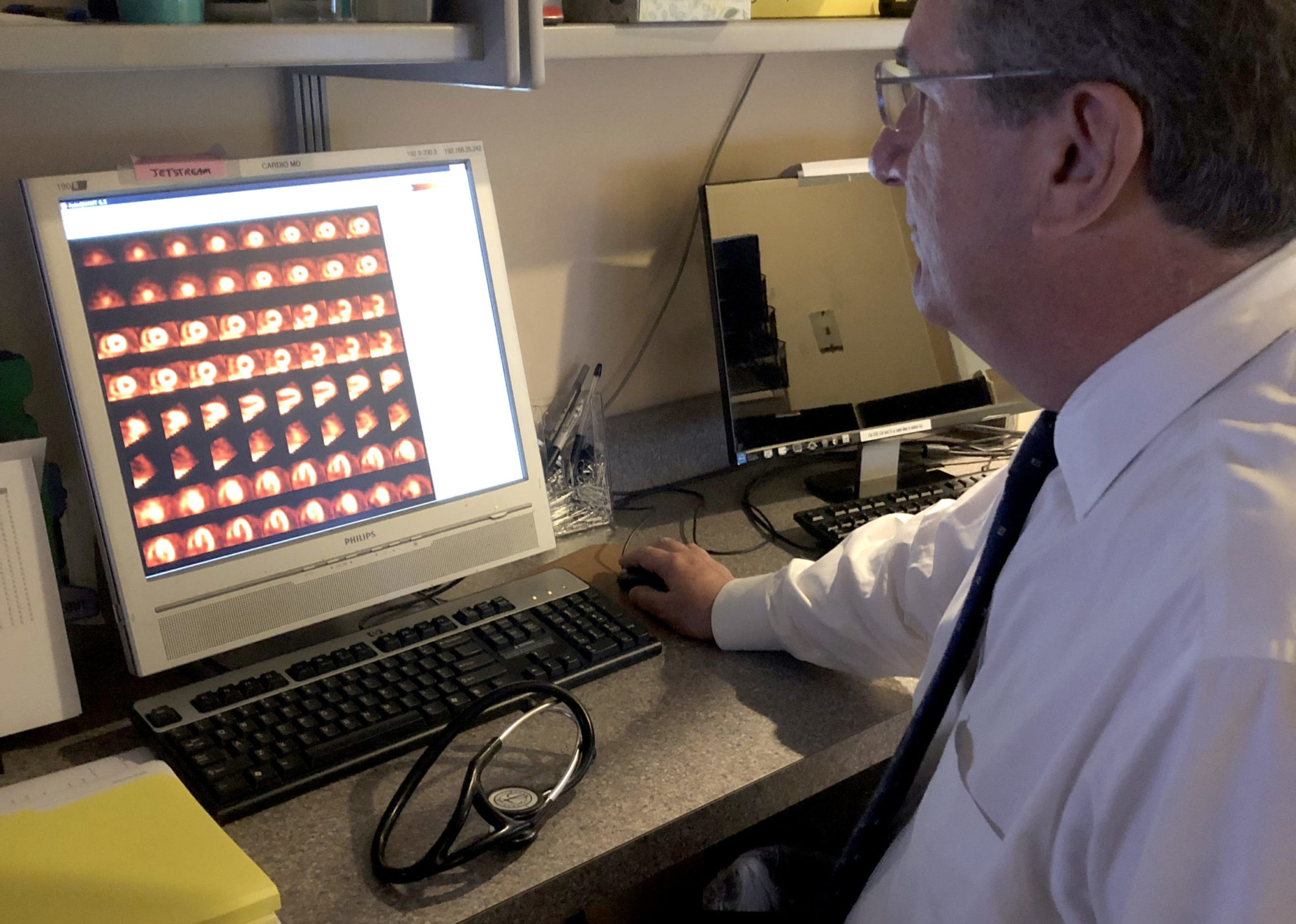Stress Test with Nuclear Imaging

A nuclear stress test is a non-invasive test that provides your cardiologist with additional information about your coronary blood flow. The test consists of two parts, a stress component and a resting component. The test can show the size of the heart’s chambers, how well the heart is pumping blood, and whether the heart has any damaged muscle. Nuclear stress tests can also give doctors information about your arteries and whether they might be narrowed or blocked because of coronary artery disease.
Part I: Rest
- An IV is placed in your arm;
- A low level radioactive tracer is injected through the IV. There are no side effects from the injection;
- You will wait in the waiting room for your resting pictures;
- You will lie under an open camera to take images of your heart.
Part II: Stress
If you are walking on the treadmill:
- You will be connected to a heart monitor and walk on the treadmill to elevate your heart rate. The amount of time spent on the treadmill varies based on age and overall fitness;
- While you are walking on the treadmill, an isotope will be injected through the IV for stress pictures;
- When stress portion is over, the IV will be removed and you will wait in the waiting room for your last set of pictures;
- We recommend you eat and drink something while you wait.
If you are NOT walking on the treadmill:
- You will receive a medication called Lexiscan that dilates the arteries around the heart;
- During the test, your blood pressure and heart rhythm will be monitored;
- When the test is over, you will wait in the waiting room for your last set of pictures;
- We recommend you eat and drink something while you wait.
Results:
- A nuclear cardiologist will interpret your results. If a follow-up visit is scheduled within the next few weeks, results will be discussed at that appointment. Otherwise, you can expect to receive a call from our office with your results.
Where is this test performed:
This test is available in our Glastonbury, Wallingford and Avon locations. Your test may take place all in one day or two consecutive days. This will be determined when your appointment is set up. A one-day test takes approximately three hours to complete. A two-day test takes approximately 1½ hours each day to complete.
Preparation:
Preparations for this test are very important. Please follow the instructions EXACTLY.
- Please do not eat or drink for four (4) hours prior to the test. Small sips of water may be taken with medications;
- No caffeine of any kind for 12 hours prior to the test, including regular and decaf, regular or decaf tea, soda or chocolate;
- Do not smoke or vaping for four (4) hours prior to the test;
- Please bring a list of your medications, your insurance card, and your co-pay (if any) to your appointment;
- We provide water and crackers for you after the stress portion of the test;
Click here for more information about medication and dietary considerations for this test.
If you are or think you may be pregnant, please inform the technologist.
Clothing:
- Dress in layers as it may be cool in the office;
- If you are walking on the treadmill, wear comfortable clothes and sneakers;
- Do not use any lotion on your chest and/or arms.
Medications:
- Medications such as beta blockers, calcium channel blockers, diltiazem, metformin and insulin may be held prior to the procedure. Please refer to your cardiologist’s recommendation.
Important note:
- If you must cancel your test, we require 24-hour notice. A fee will be billed for any missed appointments without 24-hour notice. The nuclear isotopes are ordered ahead of time, specifically for you. They are not returnable.